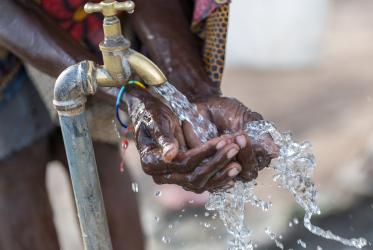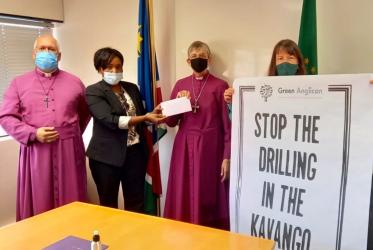Displaying 1 - 20 of 172
WCC institute encouraged rethinking theology
23 November 2023
WCC mourns the death of Julio de Santa Ana
20 April 2023
Pandemic and pedagogy: what are the valuable lessons?
21 December 2022
Theological education in Africa promotes social transformation
03 November 2022
WCC leaders recall life-changing experiences from early days
10 February 2022
Protecting Ethiopia’s church forests
27 October 2021
South Sudanese Churches shelter populations displaced by floods
23 September 2021


















